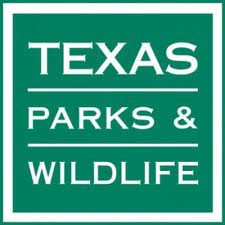One of the first questions new landowners should ask is, where can I find expert guidance as I manage my land? There are several state and federal agencies that provide technical assistance, however, Texas A&M AgriLife Extension Service, Texas Parks and Wildlife Department, Texas A&M Forest Service, and Natural Resources Conservation Service are the four primary agencies that we would advise private landowners to start with. Below you can click on the agency logo to go directly to their main contact page, and read their mission statements and job descriptions to determine who you should contact for certain situations. You can also watch the video at the bottom of the page to let representatives from each agency describe their agency and what they do.
Also, financial assistance is available through different agencies to reduce landowner costs for implementing different practices on their land to benefit wildlife. Most of these programs require the landowner to pay for half of the implementation costs, but landowner costs could be as low as 25% in some programs. For example, the cost to conduct mechanical brush control in areas with canopy cover above 50% may be $264 per acre, as opposed to chemical brush control using aerial or ground equipment costs $32 per acre. Costs vary between years and among agencies. Contact your local NRCS, TPWD, and Forest Service professionals for program rates and availability.
Roles of Natural Resource Agency Professionals
Mission – Improving the lives of people, businesses, and communities across Texas and beyond through high-quality, relevant education.
County Extension Agent – County Extension Agents are based in every county in Texas to serve the needs of the residents of that county. These Agents provide information and resources on a wide scale covering agriculture and natural resources.
Wildlife Specialist – Wildlife Specialists provide expertise related to wildlife species in a region to assist County Extension Agents.
Rangeland Specialist – Rangeland Specialists provide expertise related to rangeland and pastureland management to assist County Extension Agents.
Mission – The Natural Resources Conservation Service (NRCS) is a federal agency that works hand-in-hand with the people of Texas to improve and protect their soil, water and other natural resources.
District Conservationist – Work at the county level to assist clients in voluntary conservation plan development. Conservation plans are developed and implemented to protect, conserve, and/or enhance natural resources on the land within the client’s social and economic interest and abilities. Natural resources are defined by NRCS to include soil, water, air, plants, animals, energy and human considerations.
Wildlife and Rangeland Management Specialists – These specialists identify soil and plant resources on property and inventory vegetative production for development of a grazing management plans. They can also help determine livestock and wildlife utilization on vegetation and prescribe livestock management strategies to enhance grazing resources by developing water and fencing systems. Additionally, they can develop plans for restoring native vegetation following land reclamation practices like brush removal and management. Although these are some of the duties performed by an RMS, they are not all-encompassing and differ for region to region based on the needs of local landowners.
Mission – Texas A&M Forest Service provides statewide leadership to assure the state’s trees, forests and related natural resources are protected and sustained for the benefit of all.
Staff Forester – Works with landowners to conduct forest management activities, including developing stewardship plans.
Resource Specialist – Conducts wildfire suppressive activities and serves as emergency responder on a statewide basis.
Mission – To manage and conserve the natural and cultural resources of Texas and to provide hunting, fishing and outdoor recreation opportunities for the use and enjoyment of present and future generations.
Wildlife Biologist – Wildlife Biologists conduct habitat management activities on state-owned lands to enhance wildlife habitat and provides opportunities for hunting, fishing, and nature tourism to the public. They also conduct outreach events for landowners to demonstrate different habitat management practices landowners can do on their land.
Wildlife Diversity Biologist – Wildlife Diversity Biologists provide a local resource for landowners as well as leadership within local research, planning and outreach initiatives to conserve rare species and areas with high conservation value across the state.
Technical Guidance Biologist – Provide advice and information to private landowners interested in the conservation and development of wildlife habitat on their property. Assist interested landowners to develop a Wildlife Management Plan to guide habitat management activities on the property.



